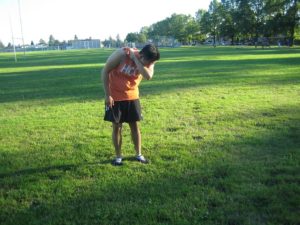Hiccups are characterized as recurrent involuntary spasms of the diaphragm that is followed by rapid, noisy closing of the glottis. The diaphragm is the muscle that separates the chest from the abdomen responsible for each breath. The glottis is the opening amidst the vocal cords which closes to prevent the flow of air to the lungs. Remember that hiccups are quite common among men.
The momentary episodes of hiccups are quite common. Occasionally, the hiccups persist for some time even among healthy individuals. Oftentimes, hiccups can last more than 2 days or even more than a month. These persistent episodes are known as persistent or intractable. These extended episodes are uncommon but can be quite upsetting.
What are the possible causes?
Many doctors are still uncertain why hiccups occur but it is believed to involve the irritation of the nerves or certain regions of the brain that control the muscles responsible for respiration.
The brief episodes of hiccups often have no evident cause but can be oftentimes triggered by the following:
- Consumption of alcohol
- Bloated stomach
- Ingestion of irritating or hot substances
In such cases, hiccups typically start in a social situation, possibly by some combination of talking, laughing, eating and drinking. Oftentimes, hot or irritating food or liquids are the cause. The hiccups are likely to manifest if carbon dioxide levels in the blood drop. This reduction can occur if an individual hyperventilates.

The persistent or intractable episodes of hiccups might have more serious causes. The possible causes include chest or stomach surgery, irritated diaphragm or accumulation of waste products in the blood once the kidneys malfunction. In rare instances, the hiccups develop once a stroke or brain tumor disrupts with the breathing center in the brain.
If the cause is considered serious, the hiccups might persist until the exact cause is fixed. The cases triggered by a brain tumor or stroke might be difficult to stop and can be exhausting.
Assessment
The brief episodes of hiccups do not require assessment by a doctor. As for persistent cases, there are certain considerations to bear in mind whether there is a need to consult a doctor and what to expect during an evaluation.
What are the warning indications?
Among those who have hiccups, there are symptoms and qualities that are a cause for concern particularly neurological symptoms such as:
- Headache
- Weakness
- Balance loss
- Numbness
When to consult a doctor
An individual with hiccups and the warning signs must set an appointment with a doctor right away. An individual with the warning signs must see a doctor if the episodes lasts for more than 2-3 days.
What to expect during a consultation?
The doctor will ask questions regarding the symptoms and medical history then followed by a physical exam. The findings during the assessment often indicates the exact cause and the tests that should be done.
